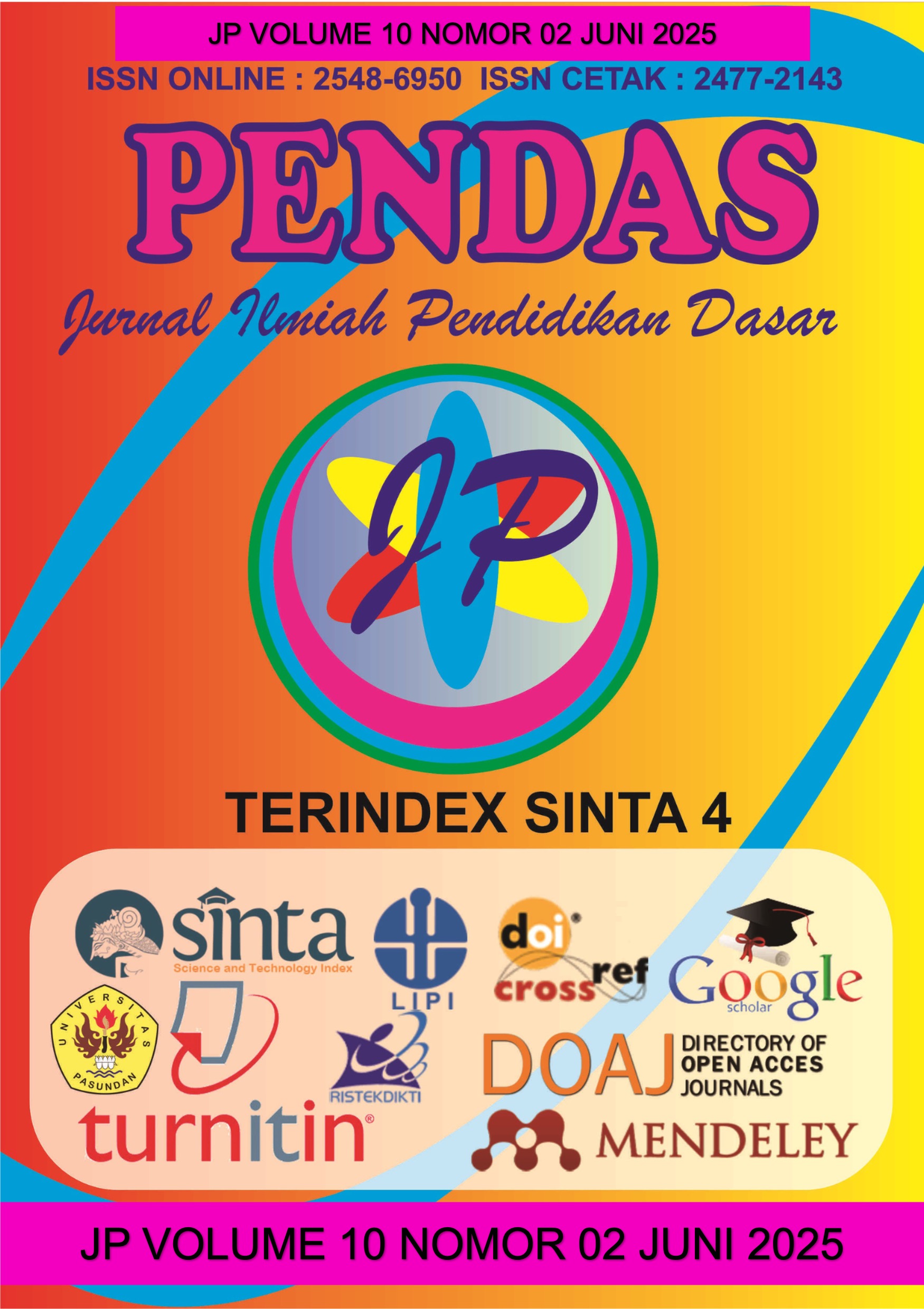TANTANGAN PENDIDIKAN SEKOLAH DASAR MASA DEPAN
DOI:
https://doi.org/10.23969/jp.v10i02.27443Keywords:
basic education, learning technology, teacher welfare, 21st century challenges, literature reviewAbstract
Using a descriptive qualitative literature study, this research aims to find and analyze the problems facing primary school education in the future. The research focuses on two main elements: challenges to implementing learning technology and issues of teacher quality and welfare. The analysis shows that the major barriers to implementing technology-based learning are the gap in access to technology infrastructure and the low level of digital literacy in some areas. In contrast, the quality of learning depends heavily on teacher preparedness. Lack of professional training and lack of welfare can reduce teacher motivation and performance. Therefore, to face the challenges of basic education in the future, a concerted effort is needed to ensure everyone has access to technology, improve their capacity and sustainably safeguard teachers' welfare. These results are expected to contribute to the formation of flexible and inclusive education policies in the digital and global era.
Downloads
References
21K School. (2022). Impact of globalization on education: Understanding the pros and cons. Retrieved from https://www.21kschool.com/us/blog/globalization-in-education
Afif, N. (2019). Pengajaran dan Pembelajaran di Era Digital. IQ (Ilmu Al-Qur’an): Jurnal Pendidikan Islam, 2(01), 117–129. https://doi.org/10.37542/iq.v2i01.28
Arifudin, O., Hasbi, I., Setiawati, E., Ma’sumah, Supeningsih, Lestariningrum, A., Suyatno, A., Umiyati, Fitriana, Puspita, Y., Saputo, A. N. C., Ma’arif, M., Harianti, R., & Sidik, N. A. H. (2021). Konsep Dasar Pendidikan Anak Usia Dini. Widina Bhakti Persada Bandung.
Baidowi, A. (2022). Manajemen Perubahan Pendidikan. Jambura Journal of Educational Management, 3(1), 55–63. https://doi.org/10.37411/jjem.v3i1.1278
Carroll, M., & McCulloch, M. (2018). Understanding Teaching and Learning in Primary Education (J. Clark (ed.); Second Edi). SAGE Publications.
Hutasuhut, S., Siagian, I., Silaban, H., Sitio, F., Silalahi, H., Silva, H., Naibaho, D., & Lahagu, P. H. (2025). Kesejahteraan Guru di Indonesia. 3, 227–235.
Irwandi, S., Ufatin, N., & Sultoni. (2016). Peran Sekolah Dalam Menumbuhkembangkan Perilaku Hidup Sehat Pada Siswa Sekolah Dasar (Studi Multi Situs di SD Negeri 6 Mataram dan SD Negeri 41 Mataram Kota Mataram Nusa Tenggara Barat). Jurnal Pendidikan, 1(3), 492–498.
Kementerian Pendidikan. (2019). KONSEP PEMBELAJARAN ABAD 21 Setelah. 11(1), 1–14.
Kiplinger. (2024). AI Goes to School: Artificial intelligence is heading to the classroom, but not without concerns. The Kiplinger Letter. Retrieved from https://www.kiplinger.com/politics/ai-goes-to-school
Melianti, E., Handayani, D., Novianti, F., Syahputri, S., & Hasibuan, S. A. (2023). Pentingnya Pendidikan Yang Ada di Sekolah Dasar. Jurnal Pendidikan Dan Konseling, 5(1), 3549–3554.
Rahayu, R., Iskandar, S., & Abidin, Y. (2022). Inovasi Pembelajaran Abad 21 dan Penerapannya di Indonesia. Jurnal Basicedu, 6(2), 2099–2104. https://doi.org/10.31004/basicedu.v6i2.2082
UNESCO. (2023). Technology in education: A tool on whose terms? Global Education Monitoring Report 2023. Retrieved from https://gem-report-2023.unesco.org/technology-in-education
Downloads
Published
Issue
Section
License
Copyright (c) 2025 Pendas : Jurnal Ilmiah Pendidikan Dasar

This work is licensed under a Creative Commons Attribution 4.0 International License.














































